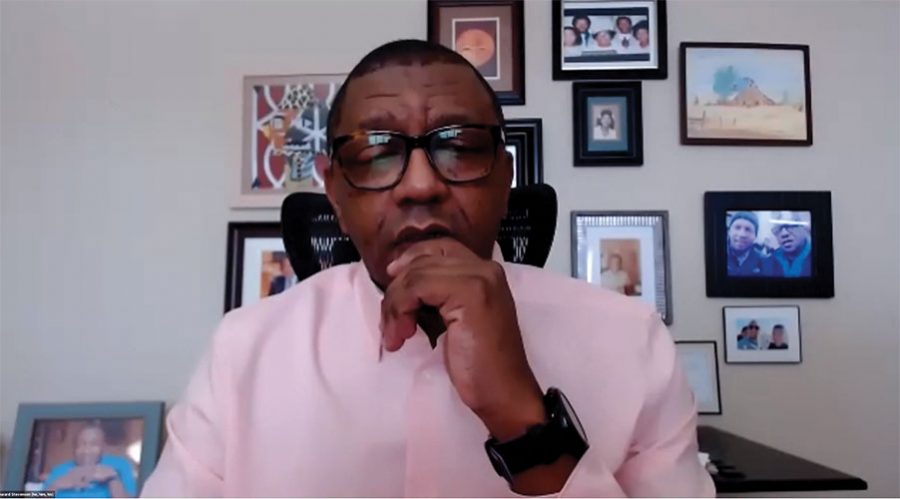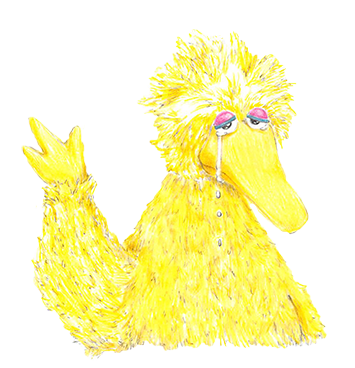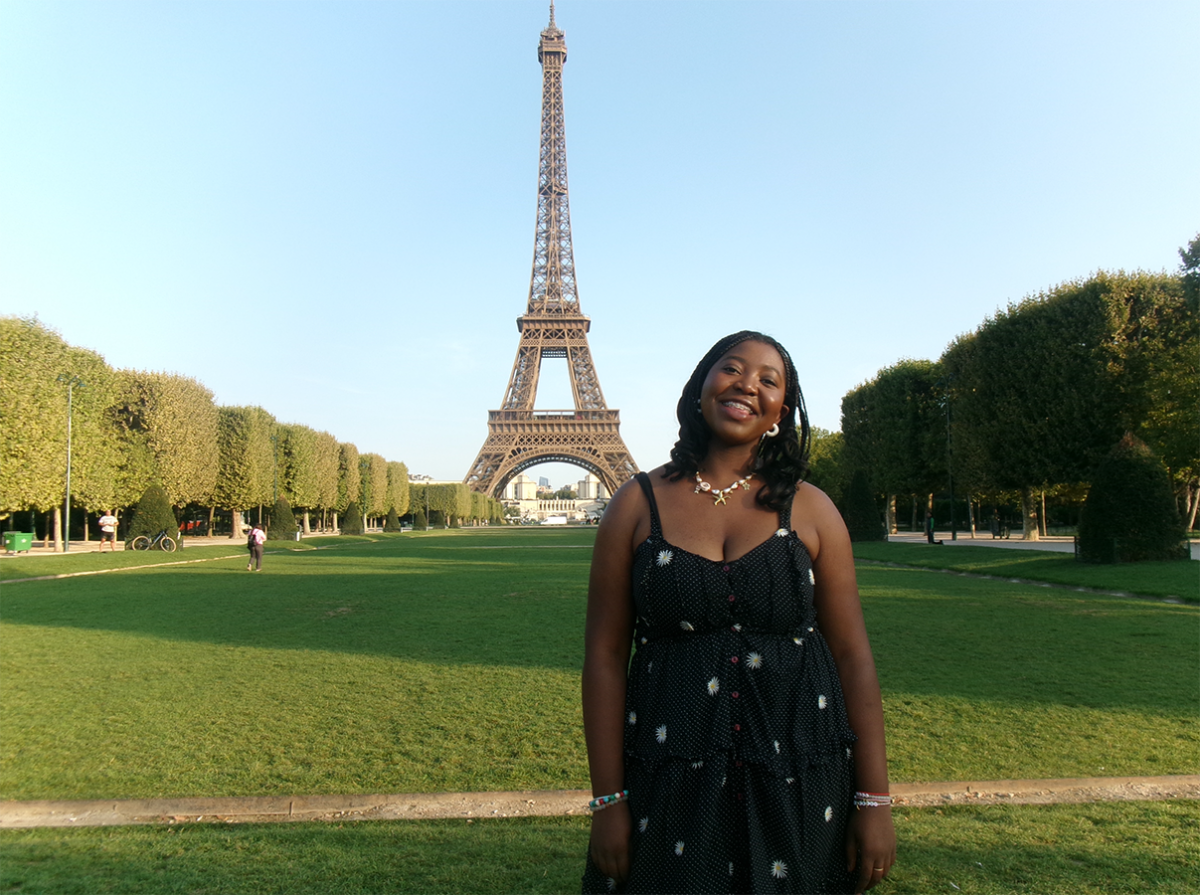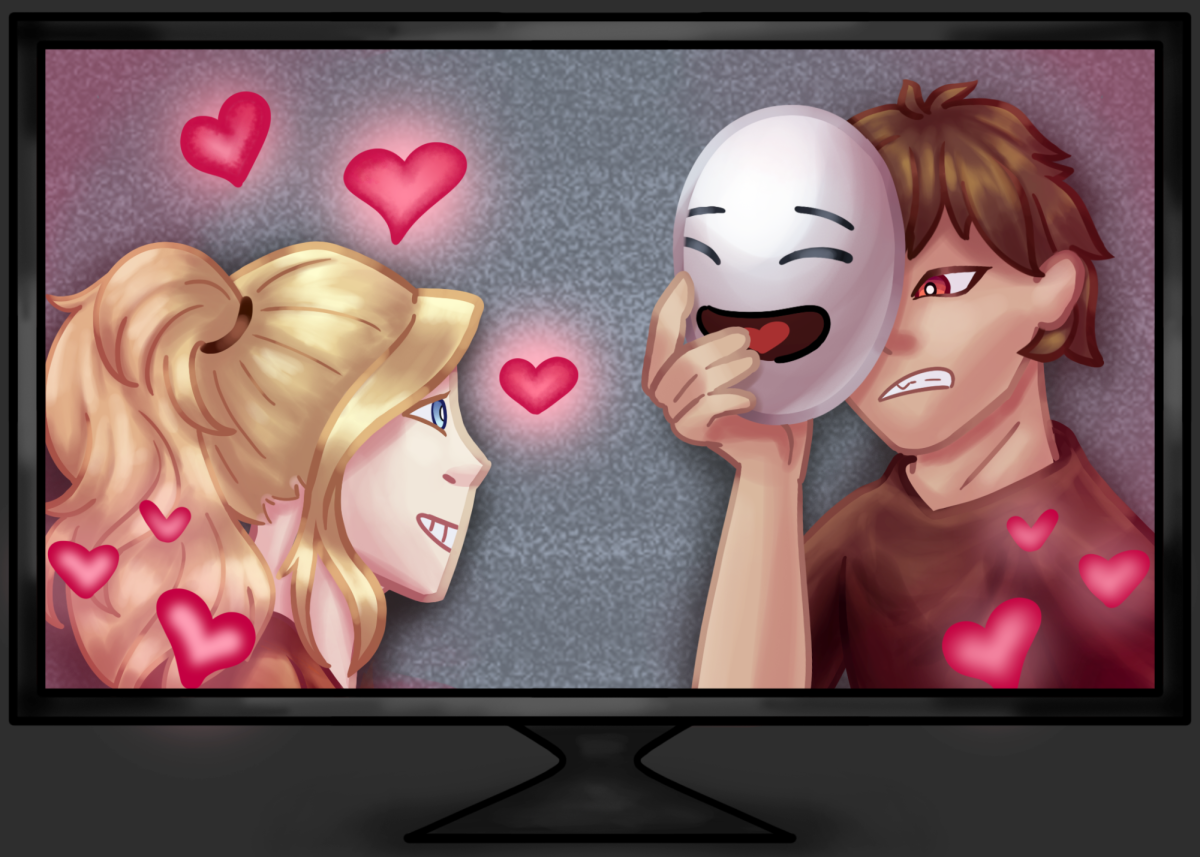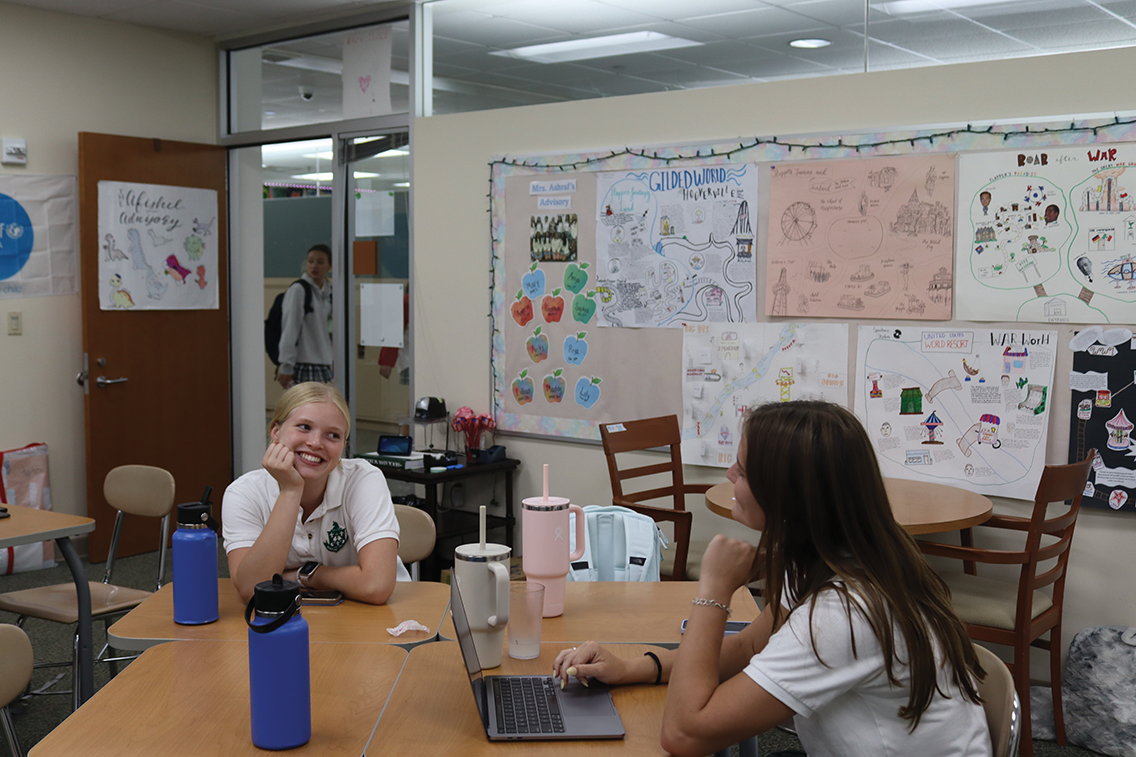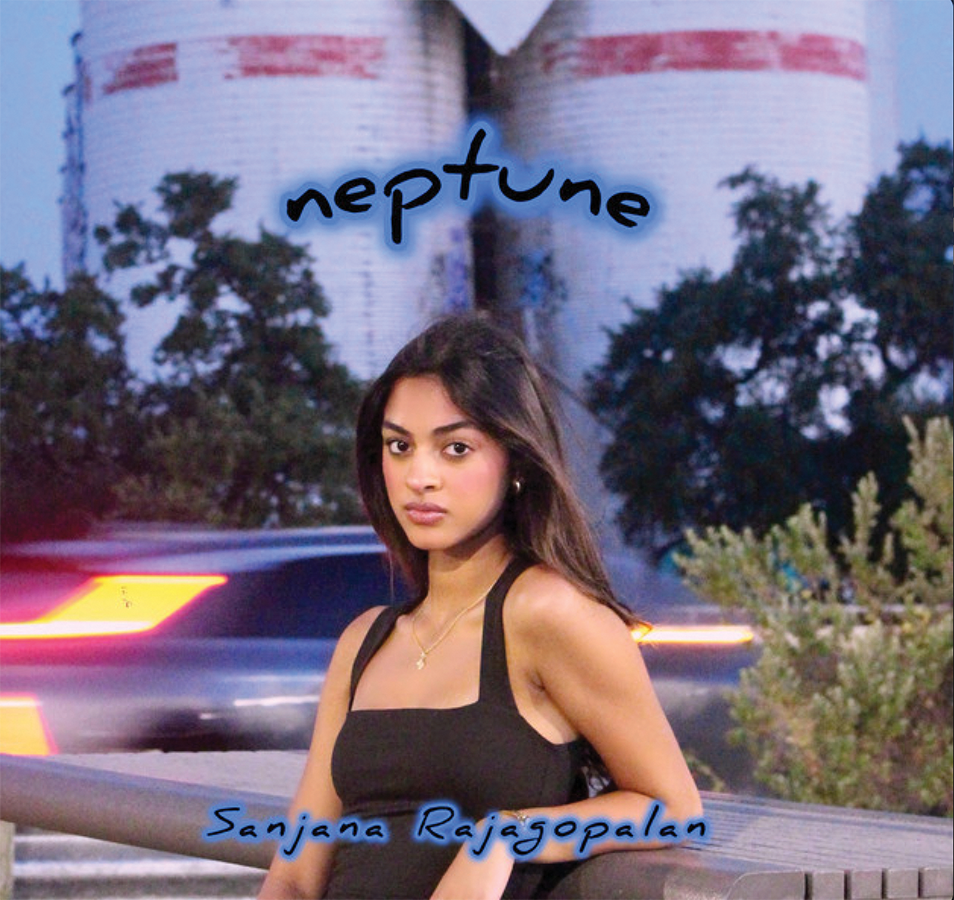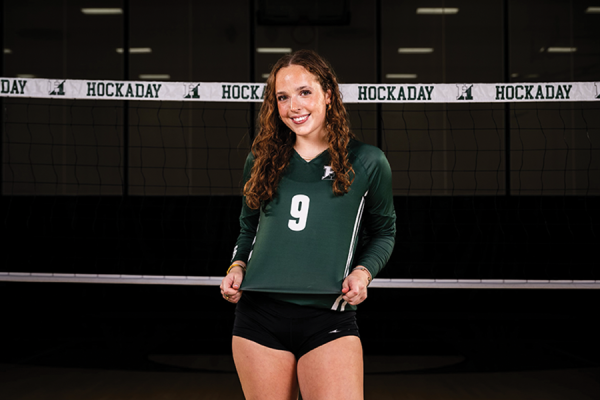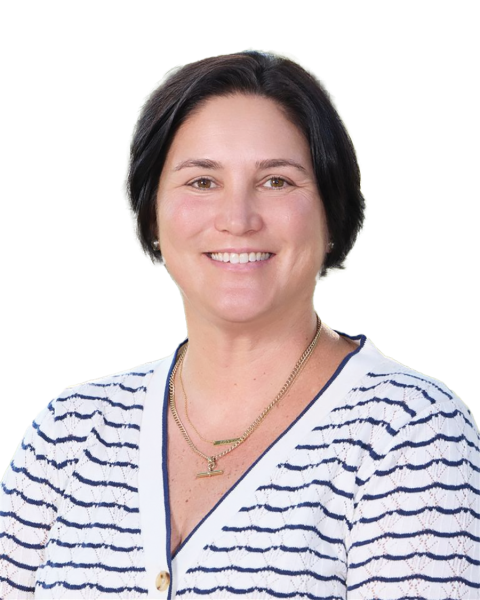Continuing the conversation
Dr. Howard Stevenson leads anti-racism training and education Zoom call. photo provided by Tresa Wilson
October 28, 2020
Hockaday’s anti-racism training and education continued on Sept. 29 and 30 for both Middle and Upper School students who had the opportunity to be on Zooms with Dr. Howard Stevenson, a clinical psychologist and a Constance Clayton Professor of Urban Education, Professor of Africana Studies at the University of Pennsylvania.
Megan Thomsen, a Middle School history teacher, said she expected the sessions to be powerful after faculty attended a training with Stevenson in August.
“He has this calmness that draws you in, makes you feel like you are heard, and then allows you to share what you are feeling.” Thomsen said. “I was excited to see how my students would react to his presentation and hopeful that they would get as much out of it as the teachers did.”
Dr. Stevenson started his sessions by telling his own life story, and how he felt he belonged at the University of Pennsylvania but did not fit in. His vulnerability at the beginning later called others to share their own stories in the sessions.
He shared a technique with students who find themselves in racially stressful situations: “calculate, locate, and communicate, breathe and exhale.” It is shortened to the acronym CLCBE. The strategy is practiced by looking at yourself and finding and feeling your emotions. The intent is not to minimize a conversation or interaction in any way, but to be able to handle it and stay composed. Handling it, staying composed and being aware of how each situation affects you is an important skill, Stevenson said.
As he described it, the exercise starts with each person recognizing what level of feelings they are currently experiencing, and calculating the severity of those feelings on a scale from 1 to 10. Next, they can locate where those feelings are. An example could be “my chest feels tight, and I can feel my hands getting clammy.” Finally, they can recognize their own self-talk and self-images in the moment and take a deep breath.
Dr. Stevenson walked through this method with every student who shared their stories, helping them discuss their the story and the problems they opened up about, while paying sharp attention to both the problem and their feelings.
Ruhi Mehta, a sixth grader, said she took away a feeling of empowerment from the Zooms by knowing that “people will be there to help you. You have to tell someone, because it is not good to keep this bottled up.”
Senior Annie Zhao shared the relief that she felt when sharing her storry.
“I felt liberated! I’d only shared that story with my parents and one friend before the Zoom, so it was pretty strange talking about it with such a large audience,” Zhao said. “However, it was a very positive experience for me, especially because I received so much support from my peers and teachers during and afterwards.”
More than six Upper School students sharerd their stories they wished they could have “done-over”, and the problems and feelings that went along with those experiences.
Premanshi Agarwalla ‘22 shared her feelings on how personal the experience was.
“Often times, especially in today’s online environment, a lot of our actions can come off as performative and shallow” Agarwalla said. “People say things just for the sake of getting a word in, not thinking much of it, and not really having an impact. But during this activity, people really got personal, trusting everyone in the Zoom, and sharing instances that they’ve really reflected on and wished they could change.”
Middle School students also bravely shared their stories in front of the members of the call. By the end, there were almost 1,000 messages of encouragement in the chat.
Janet Bilhartz, Upper School English teacher, shared what she took away from the sessions.
“I found this to be Dr. Stevenson’s best—and most surprising—piece of advice: don’t share your story in hopes of changing other people’s attitudes,” Bilhartz said. “You can’t change others. Share your story because it is your truth, and it matters.”


